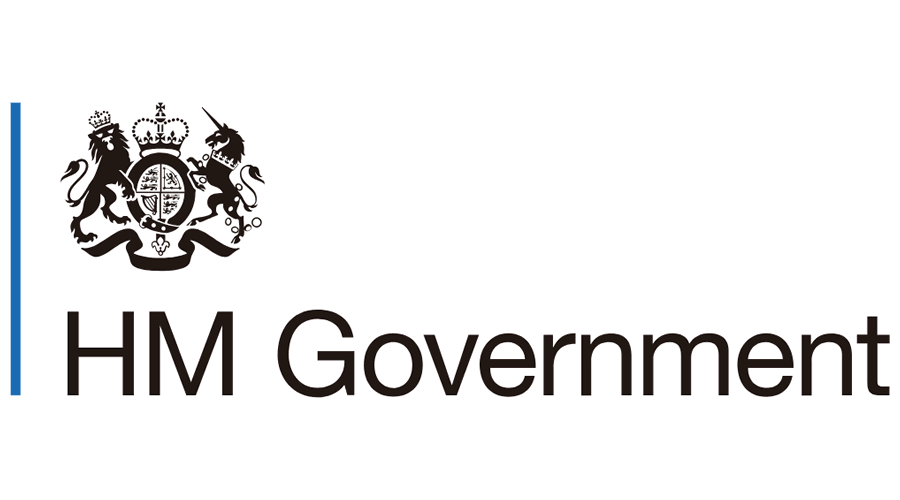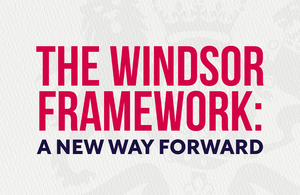
A new way forward for a prosperous, stable future for Northern Ireland was been set out ye sterday (Monday 27 February), rewriting the Treaty to fix the practical problems for the people and businesses of Northern Ireland, protects Northern Ireland’s place within our Union, and restores the balance of the Belfast (Good Friday) Agreement in all its dimensions.
sterday (Monday 27 February), rewriting the Treaty to fix the practical problems for the people and businesses of Northern Ireland, protects Northern Ireland’s place within our Union, and restores the balance of the Belfast (Good Friday) Agreement in all its dimensions.
The Windsor Framework, agreed by the Prime Minister and European Commission President today, replaces the old Northern Ireland Protocol, dealing with the issues it has created and providing a new legal and UK constitutional framework.
It delivers free-flowing trade in goods between Great Britain and Northern Ireland by removing any sense of the border in the Irish Sea for goods staying within the UK. These goods will travel as normal through a new green lane without red tape or unnecessary checks, with the only checks remaining designed to prevent smuggling or crime.
It protects Northern Ireland’s place in our Union, replacing swathes of EU laws with UK laws and ensuring the people of Northern Ireland can benefit from the same tax policies, food and drink, medicines, and parcels as the rest of the UK.
It puts the people of Northern Ireland in charge with active democratic consent. The Agreement rewrites the Treaty text with a new Stormont Brake that means the UK can veto new EU goods laws if they are not supported by both communities in Northern Ireland, which goes far beyond previous agreements or discussions on the old Protocol.
At today’s press conference, Prime Minister Rishi Sunak said:
“Today’s agreement is written in the language of laws and treaties. But really, it’s about much more than that.
“It’s about stability in Northern Ireland. It’s about real people and real businesses. It’s about showing that our Union, that has lasted for centuries, can and will endure.
“And it’s about breaking down the barriers between us. Setting aside the arguments that have for too long, divided us. And remembering the fellow feeling that defines us: This family of nations – this United Kingdom.”
The Windsor Framework delivers free-flowing movement of goods between Northern Ireland and Great Britain and removes any sense of a border in the Irish Sea within the UK:
- A new green lane (the UK internal market scheme) means traders moving goods destined for Northern Ireland will be freed of unnecessary paperwork, checks and duties, using only ordinary commercial information rather than burdensome customs bureaucracy or complex certification requirements for agrifood. The same type of standard commercial information used when moving goods from Birmingham to the Isle of Wight will be used Birmingham to Belfast. All goods destined for the EU will use the red lane.
- All requirements have been scrapped for trade from Northern Ireland to Great Britain on a permanent basis, including the requirement for export declarations.
- The green lane will be expanded to include food retailers such as supermarkets and hospitality businesses, significantly reducing SPS checks and costly paperwork, and ensuring choice for consumers on supermarket shelves. A single supermarket truck who previously had to provide 500 certificates can now instead make a straightforward commitment that goods will stay in Northern Ireland. Retailers will mark goods as “not for EU”, with a phased rollout of this requirement to give them time to adjust.
- Chilled meats like sausages, which were banned under the old Protocol, can move freely into Northern Ireland like other retail food products.
- Parcels from people or businesses in Great Britain can now be sent to friends, family, and consumers in Northern Ireland as they are today, without customs declarations, processes or extra costs under the old Protocol. Parcels sent business to business will travel via the green lane.
The Windsor Framework protects Northern Ireland’s place in the Union:
- The same medicines, in the same packs, with the same labels, will be available across the UK, without the need for barcode scanning requirements under the old Protocol. The UK will license all medicines for all UK citizens, including novel medicines like cancer drugs, rather than the European Medicines Agency under the old Protocol. NI’s healthcare industry will have full access to both UK and EU markets, supporting jobs and investment through a dual regulatory regime.
- Pets can also now travel freely with their owners across the UK, without expensive health treatments like rabies or documentation from a vet. Pet owners in Northern Ireland won’t have to do a thing when travelling to GB. Where they’re not moving on to Ireland or the rest of the EU, GB owners with microchipped pets can either easily sign up for a lifetime travel document for their pet, available online and electronically in a matter of minutes, or an equally seamless process built into the booking processfor a flight or ferry.
- Previously banned iconic plants like English oak trees and seed potatoes will once again move easily within the UK without the bureaucratic checks and costly certification under the old Protocol and instead use a similar process to the Plant Passport scheme that already exists in Great Britain. This will end restrictions that hampered consumer choice and damaged business whilst protecting the long-standing single epidemiological area on the island of Ireland.
- The legal text of the Treaty has been amended, so that critical VAT and excise changes will apply to the whole of the UK. This means that zero-rates of VAT on energy saving materials like solar panels and alcohol duty reforms will now apply in Northern Ireland.
- The UK Government can continue to provide generous and targeted subsidies across the UK. The ‘reach-back’ risks under the old Protocol have been addressed with new stringent tests, so there are now almost no circumstances in which the Protocol applies to UK subsidies, providing certainty for businesses to trade and invest in Northern Ireland. We expect more than 98% of Northern Ireland subsidies to be unaffected in practice.
The Windsor Framework safeguards sovereignty and fixes the democratic deficit by putting the people of Northern Ireland in charge:
- The new Stormont Brake means the democratically elected Northern Ireland Assembly can oppose new EU goods rules that would have significant and lasting effects on everyday lives in Northern Ireland. They will do so on the same basis as the ‘petition of concern’ mechanism in the Belfast (Good Friday) Agreement, needing the support of 30 members from at least two parties. The Stormont Brake has been introduced by fundamentally rewriting the Treaty and goes significantly further than the ‘all or nothing vote’ under the old Protocol every four years at most.
- Over 1,700 of EU laws have been removed, and with it ECJ interpretation and oversight in areas like VAT, medicines, and food safety – so the UK Government can decide and UK courts can interpret. The minimal set of EU rules – less than 3% – apply to preserve the privileged, unrestricted access for Northern Ireland businesses to the whole of the EU Single Market and avoid a hard border on the island of Ireland.
The agreement concludes months of intensive discussions between the UK and EU to address real world issues and needs of the people of Northern Ireland.
Providing reassurance for the future, the UK and EU have agreed to work together to anticipate and deal with any other issues that may emerge and have made a joint declaration to resolve issues through dialogue, rather than formal dispute proceedings.
Alongside ‘The Windsor Framework: a new way forward’, the Government has published the full range of legal texts that underpin the Windsor Framework. These solutions put arrangements in Northern Ireland on an entirely new footing, with far-reaching changes to the old Protocol to provide lasting certainty and stability for citizens and businesses in Northern Ireland.
To give businesses and individuals time to prepare, the implementation of the agreement will be phased in, with some of the new arrangements for goods, agrifood, pets and plant movements introduced later this year and the remainder in 2024. In the meantime, the current temporary standstill arrangements will continue to apply.
The UK Government will no longer proceed with the Northern Ireland Protocol Bill, as the UK and EU have come to a negotiated agreement. Similarly, the agreement will mean the EU withdrawing all of the legal actions it has launched against the UK.
View the sector explainers HERE

 sterday (Monday 27 February), rewriting the Treaty to fix the practical problems for the people and businesses of Northern Ireland, protects Northern Ireland’s place within our Union, and restores the balance of the Belfast (Good Friday) Agreement in all its dimensions.
sterday (Monday 27 February), rewriting the Treaty to fix the practical problems for the people and businesses of Northern Ireland, protects Northern Ireland’s place within our Union, and restores the balance of the Belfast (Good Friday) Agreement in all its dimensions.